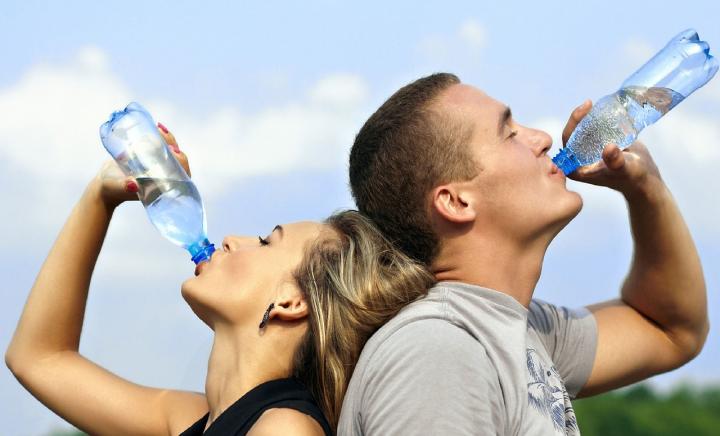
Subhead
Rethinking Our Energy Drinks, Sport Drinks, and Fortified Waters
As CDC data makes clear, food, not beverages, is actually the top contributor of added sugars in the American diet. Beverage intake comprises a relatively small portion of the calories we take in. All sugar-sweetened beverages combined attribute just 6%, and soda contributes just 4% of the calories in the American diet.
With that said soft drinks and other sugar-sweetened beverages can be enjoyed in moderation, just like other sources of calories. It’s also important to note that diet soda is 99% water and is a beneficial weight loss tool when combined with an overall regimen. We would also add that FDA-approved energy drinks are safe, and most have far less caffeine than a comparable-size cup of coffeehouse coffee.
When it comes to optimal health, it’s the overall caloric and activity balance that matters – a message our industry is promoting via its Balance Calories Initiative.
I assume you represent the perspective of the bottled-beverage industry.
My topic here was the importance of adequate hydration. I don't think your response does anything to negate the five bullet points or additional information in my post above, all of which suggest reasons for staying with plain tap water* to satisfy the body's need for fluids.
*The recent and ongoing investigations into the water quality in some municipal systems raise a very different set of concerns I may address in future posts.
We bought a Zero water filter and it is producing the greatest water I've ever drank. I highly recommend them.
Absolutely true. Water, pure plain water is the best hydration you can get. Everything else you need you can get from your diet. (Except in very special circumstances)
Our water in Oklahoma is pretty bad. The drought has affected the lakes and even tap water has made my children sick. It's so bad, the county has informed us we need to boil the water that they bring us. I've used water filters in the past, but it hasn't affected the smell and only dulled the taste. I like bottled water.
Very interesting thoughts, for sure. If it is man-made and not directly from nature, it is not as healthy as if it were natural. The earth will not produce modified or synthesized drink or food, so why buy the modified stuff? The biggest issue with most of those sports drinks is the high MSG content. Drinking something that is known to hamper the brain's ability to let you know when you've had enough or too much cannot be healthy at all.
I live in a region that has severe hard water. It looks and smells bad. It is harsh enough to destroy water heaters, refrigerators (with ice makers) and washing machines. It is imperative to have a water softener. Otherwise you will be replacing appliances often. With that being said, bottled water is the best option, nothing fancy just water.
I was born in Michigan on well water. I absolutely loved it. Missouri water no way. So there are parts of the country bottled water is the best option under the circumstances
I drink tap water all the time i fill up water bottles and place them in my refrigator and when i want a drink i just get it out of the frig. i also freeze a couple for long drives or long walks in the summer. just wash them out good with soap and water and reuse the same bottles.when i was a kid growing up we never had alot of pop and chips in the house my mom would
make tea and koolaide and popcorn for snack while we would watch t.v.
personally, I think it's crazy if not insane to buy bottled water. Why buy something that in most places you already have & are paying for? You want ice cold water? Go to the kitchen, turn on the faucet & take a glass or mug, or bottle that you've already filled with ice, and add some water. OH! That container of water was not enough?? Then do it again & again till you get enough. I mean, this is NOT rocket science folks, this is common sense! I realize that some may be a wee bit short in that department, and if that's the case, bottled water is the least of your worries. Filling a bottle with water from your tap is not hard...lest you make it out to be.
If you are going for most excellent contents like myself, just go to see this site every day
for the reason that it presents quality contents, thanks
Take a look at my page; wrinkle reducer
- « Previous
- 1
- 2
- …
- 10
- Next »











Comments